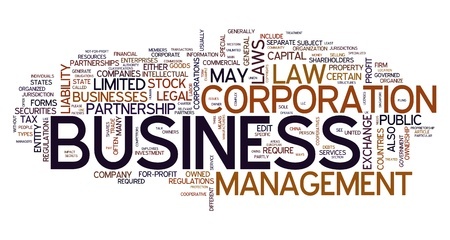Today, I want to talk to you about how to avoid the most common mistakes online businesses make when forming their single member LLC.
I want to thank The Law Office of Aiden Kramer for giving me the idea for this video. I think it's an important topic and I think a lot of people make some serious, very serious mistakes whenever they are forming their LLCs. And I figured this is something that maybe would help you and learn more about what not to do. First of all, I'm going to include a link up here to Aiden's YouTube channel. If you haven't checked her out, she's got a lot of great information. She's in Colorado.
So let's talk about a little bit about LLCs. LLCs are different than main corporations because in a corporation, if you own a piece of a corporation, you are called a shareholder. With an LLC, if you own part of an LLC, you're called a member. There's a difference there. The reason why a lot of people form LLCs, especially small businesses, online entrepreneurs, people that are doing freelance work, things like that, is because it's very easy to start. The ongoing expenses of running an LLC are typically not that great. It provides a lot of asset protection from the debts of the business. So in other words, there's limited liability protection, which means that if the business were to get sued, or you, as a business owner, would get sued for something you did in the business, then that creditor can't necessarily come after your personal assets.
But there are exceptions and that's what I want to talk to you about today. In certain times, if you don't do things correctly, a court can do what's called piercing the corporate veil. Piercing the corporate veil means basically they can say, “Well, this is basically not a real corporation or real LLC. You filed a bunch of paperwork with the state, now you're saying you're an LLC, but in reality, you're not really an LLC. It's just you doing businesses yourself. So we're not going to give you that LLC protection.” That's what you want to avoid. And that's what I'm here to talk to you about today.
So that was a long winded story about why we're getting to how to avoid the risks of a single member LLC, but I think it's important to give some context so that you understand where I'm going with this. First of all, a single member LLC has a lot more risk associated than a multi-member LLC, and that's because the courts typically don't want to break up multi-member LLCs because one of the partners or one of the business owners did something wrong, whereas the other business owners may not have done something wrong.
It's a special circumstance when you've got a single member LLC, and you're more likely to get some scrutiny on your business if you did get sued. But at the same time, you do have more freedom to do what you want with a single member LLC because you're the only owner to be honest, and that means you can pretty much do what you want. And if you follow the appropriate corporate formalities, you're going to be fine. But if you don't, that's where you get yourself into trouble.
Common Mistake #1 – Not Having an Operating Agreement
What are those appropriate legal formalities? First things first, you need to have an operating agreement. If you don't have an operating agreement, you are doing some serious harm to yourself. It's just stupid. A lot of people, what they do is they file the articles of organization for the LLC. They pay their little filing fee, they pay their annual filing fees and that's it. That's all they do. They open up a bank account, maybe apply for an EIN number and that's it. But if you don't have an operating agreement, then that could give a reason for the court to pierce your corporate veil so you need to make sure you have an operating agreement in effect.
Common Mistake #2 – Not Having All Appropriate Documents
Number two, you need to make sure you have all the appropriate organizational documents, resolutions, bylaws, things like that. Just like a real corporation would have, you need to have that information too. That's really important. Again, that's another way that a court could pierce the corporate veil and get at your personal assets.
Common Mistake #3 – Not Having Adequate Business Records
The third thing, and this is where a lot of people mess up is they don't have adequate business records. And what I mean by that is they make decisions in the business, but they don't have adequate minutes to document those decisions. And so, if you decide that you want to buy a piece of equipment, that's going to be really expensive or invest in some software or make a new hire or rent a new office, like I just did here. I've rented this wonderful new office space, and you don't have documentation that you did that, then that would be a way for somebody to pierce the corporate veil.
To avoid that, you need to have meetings with yourself, and if you go to Aiden's video, which again, I'm going to leave a link up here to her video on this same topic, she has a really great example at the very end of her video of how to have a meeting with yourself, which frankly I think is hilarious so great job, Aiden. I don't need to redo that.
Common Mistake #4 – Not Having Adequate Capitalization
Let's see. Another really important legal formality that you need to follow is to have what's called adequate capitalization. That means you can't necessarily take all the money out of your business and say, “Ha ha, go ahead and sue me. The business doesn't have any money.” No, no, no. That doesn't work like that. You need to have appropriate funds in the business to pay the debts of the business, to pay the operating expenses of the business, to do all those things. You have to make sure the business is adequately capitalized.
So this next one really hits home for me because for a long time, when I first started my practice, and this was a long time ago, we weren't, my wife and I, we weren't very good at this. When I was first starting my law practice, it was just me. She worked with me a little bit. Did we raid the corporate coffers a little bit to pay for personal expenses? Yes, we did. It was a big mistake. Should not have done it. We documented it, paid all the appropriate taxes, and did all those things. But at the same time, it's just not good practice. It's just not something you should do.
And if you haven't already read a book called Profit First by my boy, Mike Michalowicz. This is a fantastic book. You really should read it. It'll change your life. It'll change the way you manage your finances for your business. And it'll also put a process in place where you can start to allocate profits and owner's pay and operating expenses and taxes and make sure it's all handled correctly. I use this system for my law firm. I use this system for our family on a personal level, and we use this system.
Now I have a bookkeeper that handles my books now, and we use QuickBooks and all that jazz. Personal level, we use a program called YNAB. It's also called You Need a Budget. Check that out. It's really easy to do that program with Profit First. That'll keep you clean. You won't have to worry about commingling funds. You can't have the business paying your personal expenses and you can't pay your personal expenses out of the business.
Now, if you do do that, which happens from time to time, you just make it a loan to the business if you're going to do it that way. And I have done that, in lean months where I've had to take money from savings to pay for the business, I have drawn on my personal account, but the way you do it is you take the money out of the personal account, you deposit into the business account, and then you pay the expense. And then I have my bookkeeper code that as a loan to the business. So that's how you do that.
And then the last thing is you always need to make sure whenever you're signing contracts, rental agreements, equipment leases, hiring independent contractors, whatever, you need to make sure you sign that contract in your capacity as the owner or member of the single member LLC. So typically the way that's going to work is when you sign the contract, it'll say the name of your business at the top, and then it'll say by, for me, James Hart, owner of the business of the Hart Law Firm, PA. Now my business is actually a corporation. My law firm is, it's not an LLC, but if it was an LLC, that's the way you would do that.
So there you go. That's it for today. Hope you have a great day folks!



